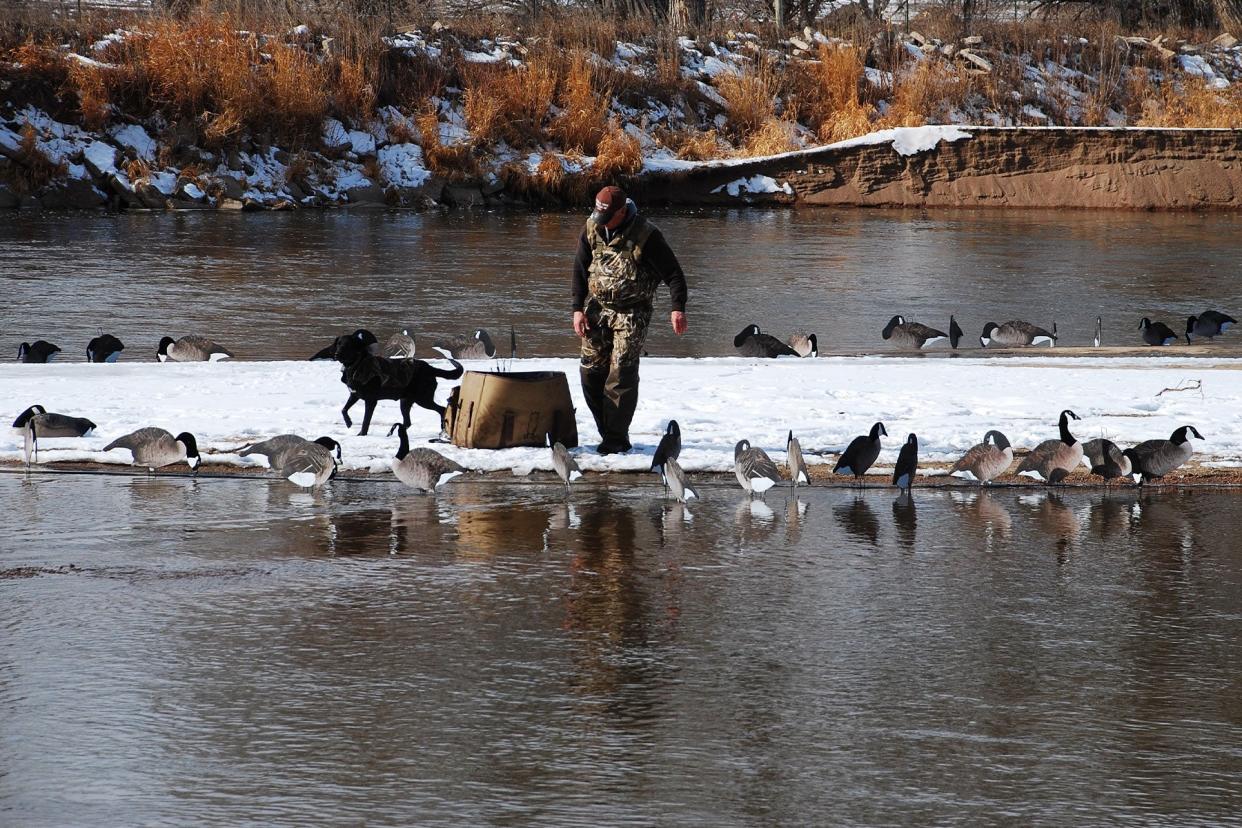Montana Could Soon Open Waterfowl Hunting on a Closed Stretch of the Yellowstone River

Next month, Montana Fish, Wildlife & Parks (FWP) will consider a measure that would open waterfowl hunting on an 87-mile stretch of the Yellowstone River in a part of the Big Sky State known for great goose hunting. The stretch of river in question has been closed to all waterfowl hunting since 1958, when duck and goose numbers were at all-time low. But local biologists say those populations have since rebounded. In Montana, waterfowlers are typically allowed to hunt any river or stream that has recreational potential, so long as they remain below regular high water marks.

The closed stretch flows roughly from Bighorn to Rosebud, Montana. According to an article in the Billings Gazette, FWP found only 546 geese along this stretch of the Yellowstone back in 1961. But a more recent study, conducted in 2013, counted a whopping 289 geese per river kilometer. That's more than 40,000 geese along the entire closed section, the Billings Gazette reports.
FWP has attempted to open certain sections of the 87-mile stretch to duck and goose hunters twice since the original 1958 closure. One of those attempts, in 1975, was shot down by a lawsuit brought by a group of homeowners with property along the the river. Another attempt, in 2009, never got a vote from FWP's Fish and Game Commission.
As part of a Masters Thesis study at North Dakota State University in 2013, Steve Atwood—now a biologist with FWP working out of Miles City—surveyed local landowners about the long-standing closure. "This study used a questionnaire to ascertain landowner attitudes towards the Yellowstone River waterfowl hunting closure," Atwood wrote in his thesis summary, "and to determine the level of receptiveness toward changes to the waterfowl management policy."
Atwood's study found that 55 percent of surveyed landowners directly along the river were not supportive of lifting the closure. "Much of the opposition Inside landowners harbor towards a ... policy change is rooted in fear of what might happen," he wrote. "When people believe that something they value is being removed, fear is the natural reaction."
Some of the respondents in Atwood's survey provided written feedback. "We do not need hunters in boats cruising this stretch hunting geese," one wrote. "[The closure] gives me a little help controlling the city idiots that believe they have access to any land the river is near," reads another landowner response.
Read Next: The Future of 28 Million Acres of Public Land in Alaska Hangs in the Balance
Some local goose hunters are opposed to lifting the closure as well. They say it has created a refuge for Canada geese, which flock to nearby agricultural fields in staggering numbers each fall. One hunter, writing in a Letter to the Editor of the Miles City Star, said more waterfowl hunters on the river will push geese further south. According to the Billings Gazette local outfitters have also expressed concerns—but conservation groups like Backcountry Hunters & Anglers and Flathead Wildlife Inc. want FWP to grant hunters access.
The matter will be taken up by the Fish & Game Commission at its regular meeting on April 17. If you'd like to provide public comment, you can do so on the FWP website.

